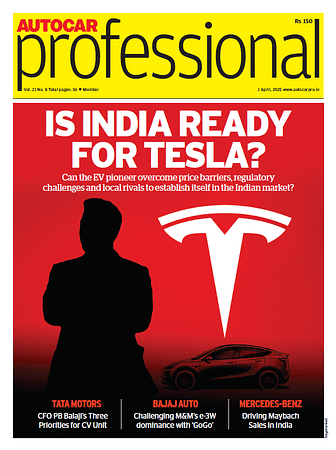Building in Silence: Ultraviolette CTO's Call for India’s Deeptech Backbone
As global supply chains face disruption and trade protectionism rises, Niraj Rajmohan, CTO and Co-founder of Ultraviolette Automotive, makes a compelling case for India’s sovereign deep tech future—built not on headlines but on hard problems.
In a candid and powerful LinkedIn post dated April 11, 2025, Niraj Rajmohan, CTO of Bengaluru-based Ultraviolette Automotive, outlined a clear-eyed view of what he sees as India’s true technological awakening—not in venture-backed hype cycles or app-based unicorns, but in the quiet, persistent work of deeptech innovators solving foundational problems.
“India cannot build its future on borrowed tech and outsourced capabilities,” wrote Rajmohan. “We’ve celebrated scale over substance. But beneath the surface, something different has been taking shape, a quiet, relentless push by a few to build real technology at home for the world.”
Rajmohan’s remarks come as the global economy confronts fresh volatility: supply chains are stretched, tariffs are back on the table, and nations are reassessing strategic dependencies.
Against this backdrop, he argues, India has a critical opportunity—perhaps even an obligation—to reclaim its technological sovereignty by building core intellectual property across sectors like clean mobility, biotech, space, and energy.
Reflecting on Ultraviolette’s journey, Rajmohan shared how the startup built its electric vehicle (EV) platform without relying on legacy systems or global templates. “It meant doing everything in-house… seven years of relentless iteration, failure, testing, and rebuilding,” he said, highlighting their commitment to vertical integration across battery systems, vehicle electronics, and software.
The decision to begin with high-performance electric motorcycles, arguably one of the toughest vehicle formats for engineers, was deliberate. “We picked the hardest format to create something that couldn’t be borrowed or reverse-engineered,” he noted, underlining a product-first mindset rooted in engineering rigor over short-term commercial ease.
But such pursuits rarely attract easy capital. “Few investors back companies solving hard, foundational problems, not necessarily chasing the next app but building what the economy needs,” Rajmohan said, singling out early believers like Speciale Invest for backing frontier tech ventures in mobility and space.
At its core, the post is a call for a structural rethink: for long-term and risk-tolerant capital, public infrastructure enabling deep innovation, and policies that don’t just incentivize scale but reward substance. “India has talent, ambition, and urgency. It requires systems with a backbone and capital with a spine,” Rajmohan concluded.
As India aspires to global leadership in next-generation technologies, Rajmohan’s message is both a critique and a blueprint.
Last week, speaking at the second edition of Startup Mahakumbh, a government-backed conclave to celebrate and promote entrepreneurship, Union Commerce Minister Piyush Goyal urged Indian start-ups to aim higher and focus on technological innovation that could help propel the country to global leadership.
In a pointed critique of the current start-up landscape, the minister appeared to contrast India’s growing base of consumer-focused ventures with more advanced innovation ecosystems abroad—particularly China, though not named directly.
While the other side is busy making breakthroughs in machine learning, robotics, and next-gen factories that are competing with the world, India is seeing a proliferation of food delivery apps, artisanal brands and online betting apps, Goyal remarked.
"What are India's startups of today? We are focused on food delivery apps, turning unemployed youths into cheap labour so the rich can get their meals without moving out of their house," Goyal said.
However, Goyal also acknowledged the rapid pace of India’s entrepreneurial rise. He praised the country’s status as the third-largest start-up ecosystem in the world and encouraged domestic investors to back Indian innovation more boldly.
“We have to be willing to evolve and learn. If we want to be bigger and better, we must be bolder,” he emphasized. “Do we want to make ice creams or chips?”
RELATED ARTICLES
Madhur Bajaj, Former Vice-Chairman of Bajaj Auto, Passes Away at 73
He was the first cousin of Rahul Bajaj, the former chairman and patriarch of the Bajaj Group, who passed away in 2022.
Harley-Davidson CEO Jochen Zeitz to Exit Role by Late 2025
Jochen Zeitz took over as CEO in 2020 and initiated project Hardwire, the company’s strategic plan for 2021-2025.
JK Tyre-WIAA Women’s Rally 2025 Begins in Mumbai
The 2025 edition of the JK Tyre-WIAA Women’s Rally to the Valley commenced in Mumbai, featuring over 300 women participa...






 By Darshan Nakhwa
By Darshan Nakhwa
 12 Apr 2025
12 Apr 2025
 1387 Views
1387 Views





 Autocar Professional Bureau
Autocar Professional Bureau



 Sarthak Mahajan
Sarthak Mahajan

